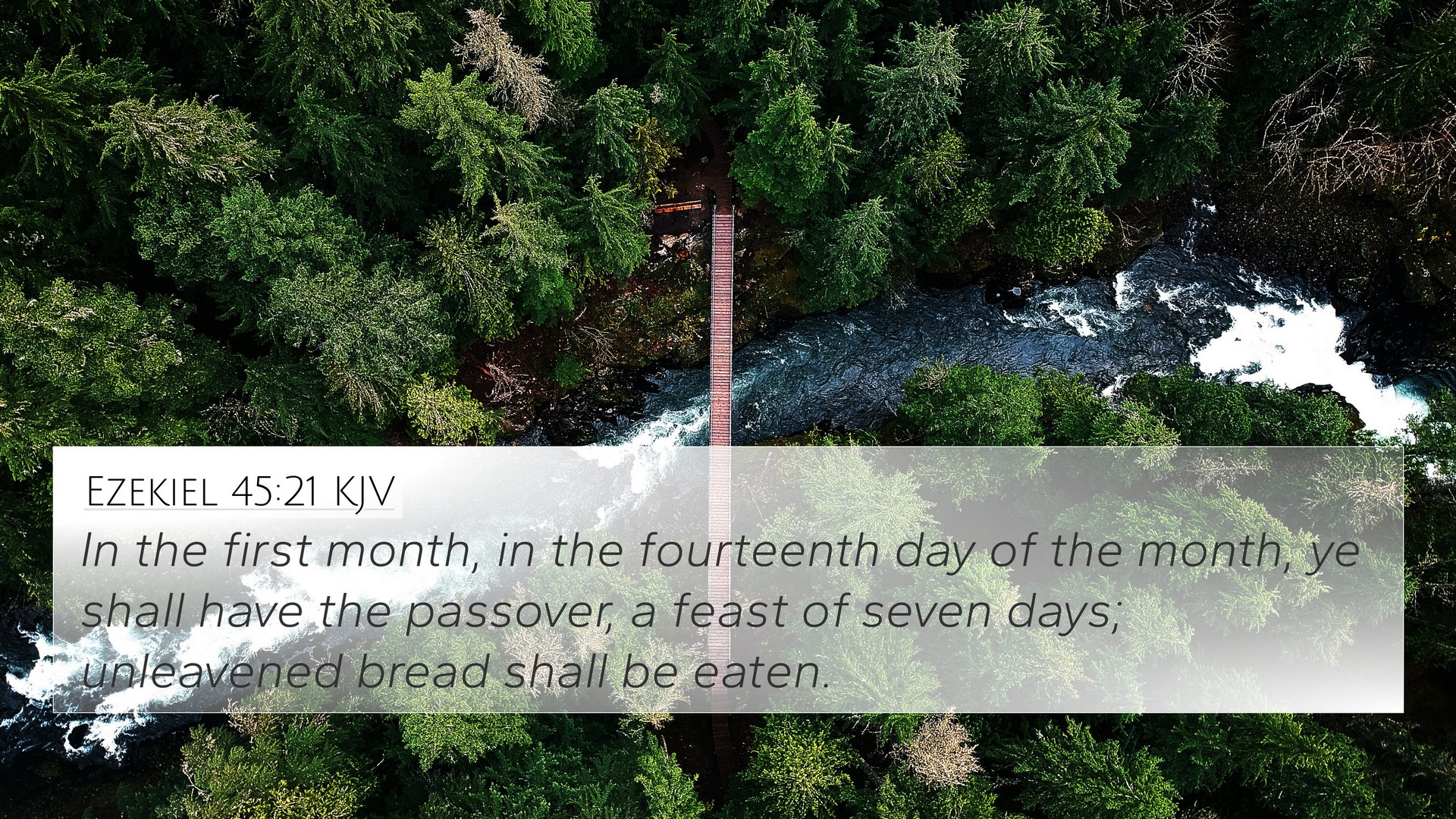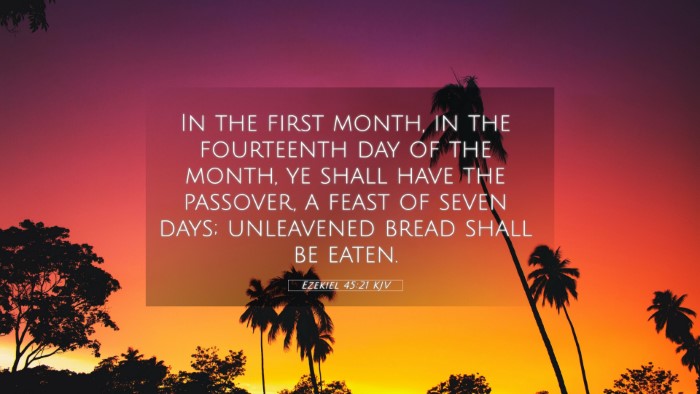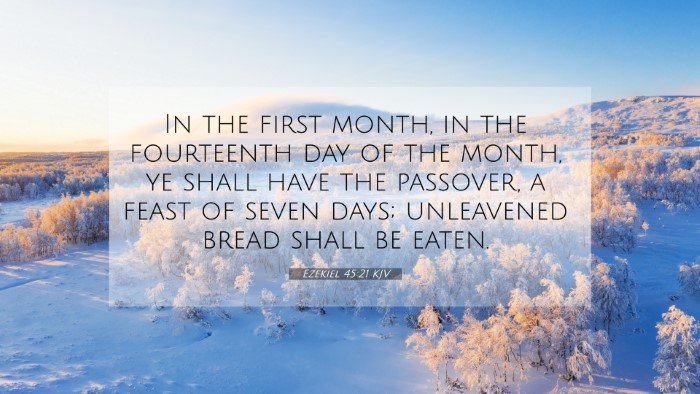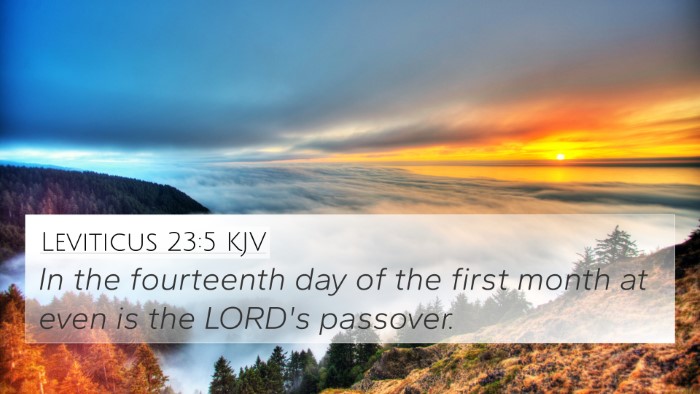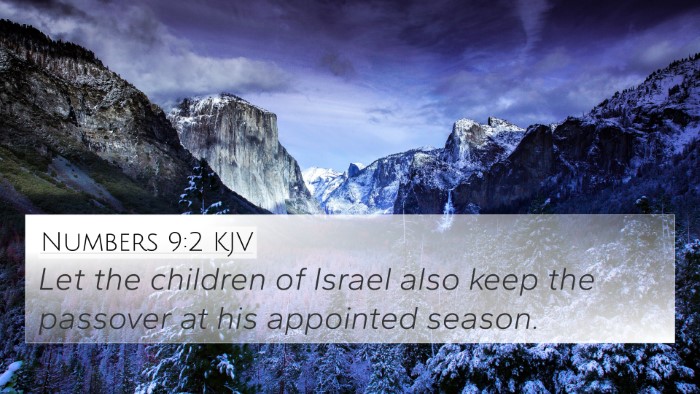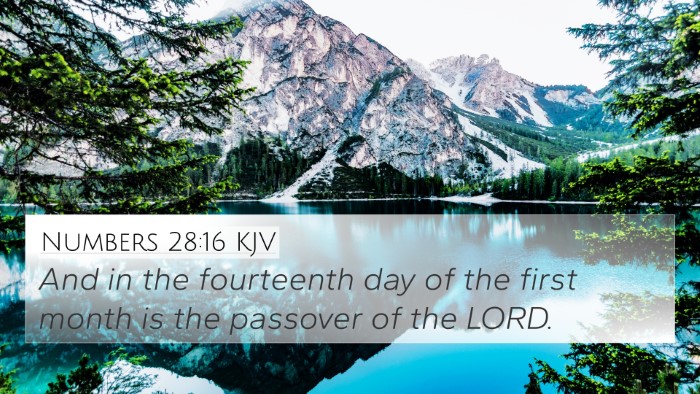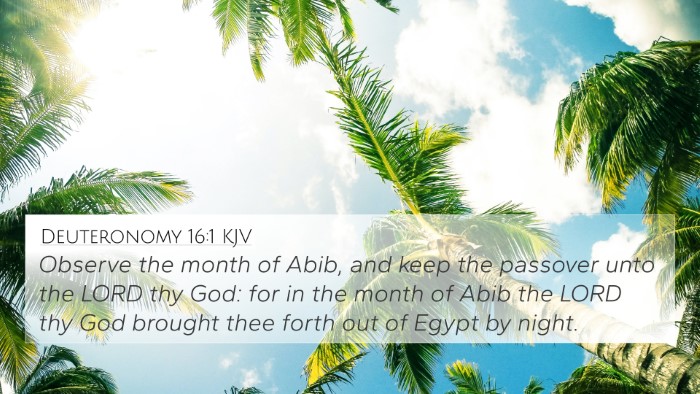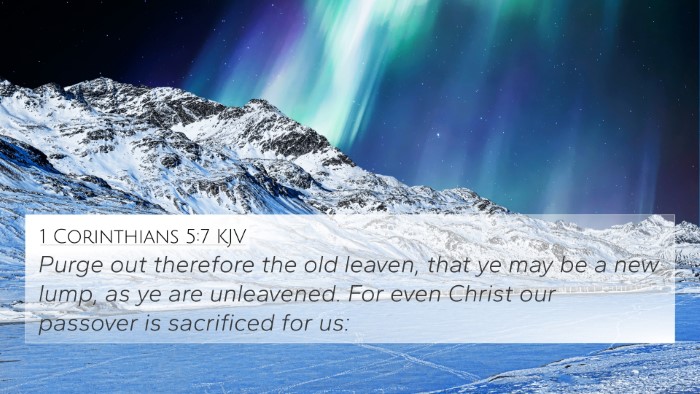Ezekiel 45:21 - Summary and Interpretation
Bible Verse: Ezekiel 45:21 - "In the first month, on the fourteenth day of the month, you shall have the Passover, a feast of seven days; unleavened bread shall be eaten."
This verse outlines the instruction for the observance of the Passover, a significant event in the Israelite calendar. The importance of this celebration is multidimensional, touching on themes of remembrance, redemption, and covenant fidelity.
Meaning and Insights from Public Domain Commentaries
Matthew Henry's Commentary: Matthew Henry views this verse as a reflection on the importance of remembering God's deliverance from Egypt. The Passover is intricately linked to the concept of salvation and freedom from bondage. The seven days of unleavened bread symbolize purity and the removal of sin from their midst, serving as a reminder for the Israelites to live a life set apart for God.
Albert Barnes’ Notes: Barnes emphasizes that this specification of dates serves to establish a clear and organized framework for worship. The meticulous detailing of the Passover point towards the serious nature of spiritual observances and the requirement for diligence in following divine commandments. This verse also connects the observance of the Passover to the larger narrative of God’s covenant, highlighting themes of continuity and faithfulness in worship.
Adam Clarke’s Commentary: Clarke discusses the historical context of the Passover in relation to the Levitical laws and their significance in reminding the Israelites of their liberation from slavery. He notes the emphasis on communal participation in the Passover feast, underscoring unity among the people of God as they remember their shared history and promise of redemption.
Thematic Connections
Ezekiel 45:21 intricately connects with various Biblical texts, enhancing our understanding through doctrinal and thematic lenses. Here are the notable cross-references:
- Exodus 12:1-28: This passage details the original institution of the Passover with similar themes of sacrifice and redemption.
- Leviticus 23:5: Description of Passover reinforces the importance of this event within the Levitical feasts.
- Deuteronomy 16:1-8: Highlights the necessity of observing the Passover, adding a layer of community remembrance.
- John 1:29: Points to Jesus as the "Lamb of God," linking the Passover lamb to the New Testament sacrificial system.
- 1 Corinthians 5:7: This verse distinctly connects Christ's sacrifice to the Passover lamb, emphasizing deliverance from sin.
- Hebrews 11:28: Refers to the faith of Israel in observing the Passover, showcasing its theological import.
- Matthew 26:17-29: The Last Supper, which was a Passover meal, illustrates the ongoing significance of this event in Christian worship.
Exploring Bible Verse Connections
In the broader scope of scripture, Ezekiel 45:21 invites readers into a deepened understanding of the connections between various Bible verses. These connections invite one to explore themes like:
- Redemption and Deliverance: The narrative of the Passover is foundational for understanding God's saving actions throughout scripture.
- Covenant Faithfulness: The observance of the Passover underscores the importance of maintaining covenantal obligations as expressed in both the Old and New Testaments.
- Community and Worship: The communal aspects of the Passover feast highlight the significance of shared faith experiences among the believers.
- The Foreshadowing of Christ: Understanding the Passover lamb as a type of Christ strengthens the interpretation of New Testament themes.
Conclusion
Ezekiel 45:21 serves as a vital reminder of the call to holiness, remembrance, and the importance of observing God’s commandments. Its connections with numerous other scriptural passages underscore the richness of Biblical themes, encouraging a deeper engagement in both personal and communal worship practices. Through cross-referencing these Biblical texts, believers can uncover a tapestry of divine truth that spans across both Testaments.
